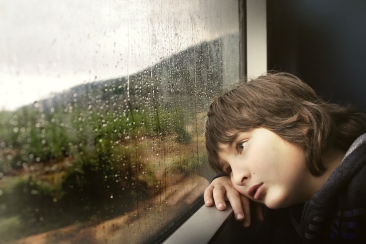
Parents – keep your emotions in check
One of the key issues is the potential for there to be an imbalance between the way a parent feels, and how the child feels.There’s every chance that parents are much more apprehensive than children are about the dangers of virus transmission with the return to school. However, because children sense and feel what parents feel, it’s important to try to be calm and to show you’re placing your trust in the schools, nurseries and all the professionals involved.
Ask the right questions when your child comes home from school
A good strategy is to really pay attention to the questions you ask your children and the answers you receive. Try to ask questions that explore how they’re feeling on a much deeper level, such as about individual things they’ve learned, to perhaps make them see how beneficial it is for them to be at school. Or ask about individual friends, to remind them of the nice emotions stirred-up by being back in their friendship groups.
Include them in future family event planning
It’s also really important that you include them in discussions about planning for future family days out or activities. Crucially, parents should be mindful they then carry out those plans. If children are emotionally and socially fine, then they’ll be ready to engage in their learning. If they’re emotionally unstable, then it will be very difficult to provide any support in helping them concentrate or engage with learning activities.
Don’t create two worlds – school and home
We need to avoid the creation of two world: home and school environment – which might then be in conflict with each other. For example, if the school has a really open dialogue about the latest Coronavirus news, but you’re shielding your children from it to perhaps protect them, this could create an imbalance. That’s why communication between the schools and nurseries and families needs to be open and clear.
Don’t fret about shifting friendship groups
Parents may notice how friendship groups have subtly shifted over the past few months, and they may be anxious about certain friends drifting away. This is simply part of life and not an effect of the Coronavirus lock-down.
Friendships change. What’s happened, given the circumstances, is that these changes have simply been accelerated through a lack of social contact. A child might also have had time to reflect on what someone else in the group did or said previously, and then decide to no longer associate with that person.
It is a natural part of the friendship cycle.
Be mindful of how you discuss the need for counselling
While it’s absolutely correct for schools to be able to offer counselling services, or to signpost children to help, where it’s needed, we shouldn’t forget that children are resilient and can overcome some hard circumstances. Making them more aware of counselling, and making them feel like they could have an issue or problem, might not actually be helpful.
Beware separation anxiety
Separation anxiety doesn’t just manifest as a refusal to leave the house, it can also result in sleep disturbance as well as physical complaints such as headaches, stomach aches and even vomiting. We don’t know how the pandemic might contribute to the mental wellbeing of children further down the line, or how they’ll interpret the situation. But we do need to be mindful about potential issues with separation anxiety. Your child could have grown accustomed to having you around, to being with you 24/7 and they’ve probably enjoyed that time together, too. Young children in particular will have settled into a new routine, which has provided them with a safety net to escape the uncertainty. When that routine changes, they could be left feeling vulnerable. According to the NHS, separation anxiety typically affects children aged between six months and three years – but it can also impact on older children and even adolescents.